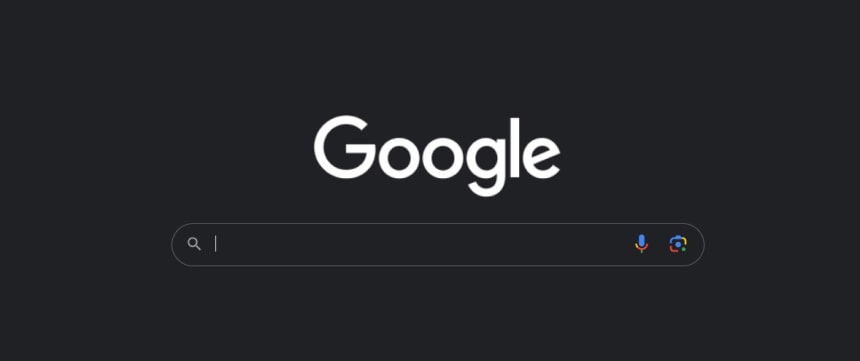
Google Search Algorithm Leak: Ranking Secrets Revealed
The factors that Google considers while determining the Search ranking system are only known by Google. Google does not clarify to users exactly what is needed for their pages to rank, except from providing guidelines and vague details. This may be for the best since everyone going in the same path could overload the ranking system. We may finally have the solution to this problem, sort of. A substantial document appears to have been leaked, and Google has not yet provided an explanation for the incident.
A leak of Google's Content Warehouse API internal documentation has provided information on Google's search algorithms. Specifics regarding scoring functions are not included in the breach, but information on content, link, and user interaction data storage is.
The document, which was uploaded online by Rand Fishkin of SparkToro, a software startup, was inadvertently released by Google. Fishkin, who has expertise with search engine optimization, says that everyone in the industry must look into it. Even though Google itself published the document, it seems more like an accident than a purposeful move to improve our understanding of the search algorithm.
This indicates unequivocally that the document is essentially a Google cheat code, although it is more complicated than it appears. There are 2,500 pages in the whole document, some of which are older than others and others of which might be considered to be more recent.
Since there is no information accessible on the most crucial components to drive search, for those working with it, all parts may be vital or none at all.
The SEO industry also asserts that certain comments made by Google don't align with the content of the document. Take domain authority as an example, and how it affects search results. As previously noted, the company has not responded to the documents that were leaked with a comment. The major Search upgrade from Google was released in March, prioritizing "helpful" information over other results. In essence, the algorithms work by judging and determining if a certain page on a website was made with the search engine or the user in mind.
Key Takeaways From the 2500 Page Google Document Leak

Here’s what we know about the internal documents, thanks to Fishkin and Michael King, iPullRank CEO:
Search Results Systems and Features
The documentation covers 14,014 attributes and 2,596 modules for a variety of Google services, such as Google documents, YouTube, and Assistant. These modules are kept in a monolithic repository, which allows any networked system to access all of the code that is kept in one single location. This is significant for companies since it emphasizes how Google's services are interconnected and shows how digital marketing strategies and SEO must be approached holistically in order to fully utilize these systems.
Domain Authority
Google has frequently criticized the use of "domain authority," maybe alluding to particular measures such as "Domain Authority" as measured by Moz. But according to the released documents, Google's ranking algorithms use a feature called "siteAuthority," which suggests domain authority is taken into account. For companies looking to get greater visibility on Google, this is essential because knowing and using site authority may have a big impact on search rankings and draw in more clients.
Clicks Determine Rankings
The main documents and the DOJ antitrust evidence verify the use of click-driven metrics through programs like NavBoost and Glue, despite Google's public declarations that they don't utilize clicks for rankings. These systems validate long-held assumptions in the SEO community by adjusting rankings based on click data. User experience and click-through rates are crucial components in attracting more clients through Google for businesses, since they have a direct impact on their search rankings when it comes to attracting and keeping visitors on their website.
Sandboxing
Sandboxing is a temporary search engine optimization technique used to block newly launched or untrusted websites from ranking well until they gain credibility and reliability. It entails putting these websites in a sort of virtual "sandbox," with limited visibility until they establish their authority through user interaction, high-quality content, and adherence to SEO best practices. The existence of a "sandbox" for fresh or unreliable websites has been refuted by Google. Nonetheless, the existence of such a system is demonstrated by the PerDocData module, which has an attribute named "hostAge" that is used to sandbox new spam. According to this Google disclosure, new websites may initially experience difficulties with ranking, so in order to increase their chances of being noticed and prevent being ignored, businesses must acquire authority and trust fast.
Chrome Data for Rankings
Despite claims made in public by Google personnel that Chrome data isn't utilized in search rankings, the documentation reveals that Chrome data is included in page quality scores and other ranking variables. In light of this, companies should understand that user behavior and performance data obtained from Chrome can affect their search engine ranks. For this reason, it is essential to optimize site performance and user experience in order to increase Google exposure.
Complex Architecture Algorithm
Rather than using a single algorithm, Google's ranking engine is made up of several microservices, demonstrating the complexity and dispersed nature of Google's systems. Businesses must take a comprehensive approach to SEO in order to optimize for search rankings, since different microservices may have an impact on other aspects of their online presence.
Twiddlers
Similar to WordPress filters, twiddlers are re-ranking functions that modify search results based on the main Ascorer algorithm. In order to promote diversity, they can modify a document's retrieval score or ranking right before it is displayed (e.g., only permitting three blog entries in a SERP). Twiddlers are features like NavBoost and QualityBoost. Businesses should be aware of Twiddlers as these modifications can affect the location and style of their content in search results.
Authors and the quality of their content
The disclosure brought to light the fact that Google measures authorship in addition to providing metrics for keyword stuffing and article originality. As is generally said, the king is great content. For businesses to increase their chances of ranking higher on Google, they must make sure they only publish original, high-quality content written by reputable writers.
Demotions
Demotion of content is caused by a number of factors, such as user satisfaction and link quality. Knowing this is important because preemptive resolution of these problems can save their content from being lowered in search results, improving visibility and reaching more customers.
Links and Indexing
Links continue to be very important even with in-depth analytics and analysis. Link value is impacted by indexing tier, with higher tiers denoting more valuable links. This emphasizes how important it is to concentrate on obtaining high-quality backlinks and making sure material is indexed at a high level, as these actions can improve search ranks and increase a website's amount of natural visitors.
Freshness and Dates
The leak disclosed that a number of date-related factors influence the freshness and ranking of material. To keep your rankings high and give users relevant information, make sure your content is fresh and up to date. Maintaining a consistent content update schedule can also improve user engagement and audience trust.
Domain Registration
The storage of registration data affects the reliability of the content. Google's opinion of a website's trustworthiness can be influenced by a domain's registration facts, including the duration of its registration and the transparency of the registrant's information. Websites may rank higher in searches if their registration information is consistent and unambiguous, as this will increase Google's perception of their legitimacy. Furthermore, longer-registered domains could be seen as more solid and dependable, which would increase their credibility and ranking potential.
Relevance of Topics and Embeddings
The use of vector embeddings to gauge how relevant material is to the website was also made apparent by Google's algorithm leak. This indicates that Google uses complex algorithms to evaluate material and assess whether it is relevant to the main theme of the page. Comprehending and refining these vector embeddings is crucial, as it might augment the pertinence and positioning of their material on Google, guaranteeing that it efficiently reaches the intended audience.
In the end, the documentation shows notable differences between Google's declared policies and real-world actions, emphasizing the necessity for the SEO community to rely more on experimentation and empirical data than on official statements.
Royex Technologies is a leading SEO Company in Dubai providing all kinds of SEO services to satisfied clients. You can contact with us by dialing +971566027916 or mail us at info@royex.net





